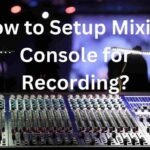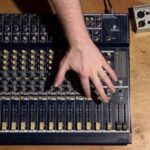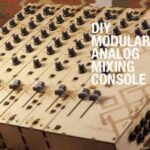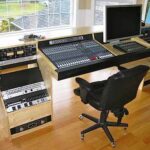Analog Vs Digital Live Sound Mixing Consoles: Analog mixing consoles use voltage to control signal levels, while digital mixers convert the audio signals into numerical values that are then manipulated by software. This difference in how the two types of mixers process sound can have a big impact on the overall quality of the live mix. Analog mixing consoles are typically considered to provide a warmer, more natural sound than digital mixers.
This is because analog mixers preserve the original waveform of the audio signal, while digital mixers sample and encode the signal into bits that are then processed by algorithms. Another key difference between analog and digital mixing consoles is flexibility. Analog mixers are generally limited to a fixed number of input and output channels, while digital mixers can be expanded to accommodate more inputs and outputs as needed.
Additionally, digital mixing consoles often offer more advanced features such as built-in effects processors and recallable user presets.
Analog vs digital live sound mixing consoles – what’s the difference?
If you’re a audio engineer, musician, or music producer, then this is a question you’ve probably asked yourself at one point or another. The truth is, there is no easy answer.
It depends on a variety of factors, including personal preference, budget, and the specific needs of your project. Let’s take a closer look at each type of console to help you make an informed decision. Analog consoles are typically cheaper and easier to use than digital consoles.
They also have a warmer sound that many engineers prefer. However, analog consoles can be more difficult to maintain and they don’t offer the same level of flexibility as digital consoles. Digital consoles are more expensive than analog consoles but they offer a number of advantages.
They’re much easier to recall settings and they offer greater flexibility when it comes to routing signals.
Additionally, digital consoles are often equipped with built-in effects processors that can save time and money during the mixing process.
Also Read: best mixing console for recording studio
Table of Contents
Analog Vs Digital Mixer Sound Quality
Digital mixers have come a long way in recent years, and their sound quality has improved tremendously. However, there are still some purists who believe that analog mixers offer superior sound quality. So, what’s the truth?
Let’s take a look at the pros and cons of each type of mixer to see which one comes out on top. Analog Mixers Analog mixers have been around for much longer than digital mixers, and they’re still the choice of many professional engineers and producers.
Analog mixers typically use vacuum tubes to amplify the signal, which can add warmth and character to the sound.
Additionally, analog mixers often have more comprehensive EQ sections, giving you greater control over shaping the sound of your tracks. On the downside, analog mixers can be bulky and difficult to transport.
They also tend to be more expensive than digital mixers. And because they use vacuum tubes, they require regular maintenance (i.e., replacing tubes) to keep them sounding their best. But if you’re looking for that classic “analog” sound, an analog mixer is definitely the way to go.
Digital Mixers Digital mixers offer many advantages over their analog counterparts. For starters, they’re much smaller and lighter, making them easier to transport from gig to gig.
They also tend to be more affordable than analog mixers. And thanks to advances in technology, digital mixer s now offer amazing sound quality that rivals (and sometimes even exceeds) that of analog mixing consoles…
What is an Analog Mixer
Analog mixers are devices that are used to combine two or more audio signals. They usually have a variety of input and output options, as well as a number of controls that can be used to adjust the level of each signal. Analog mixers can be used for a variety of applications, such as recording, live sound reinforcement, and broadcast.
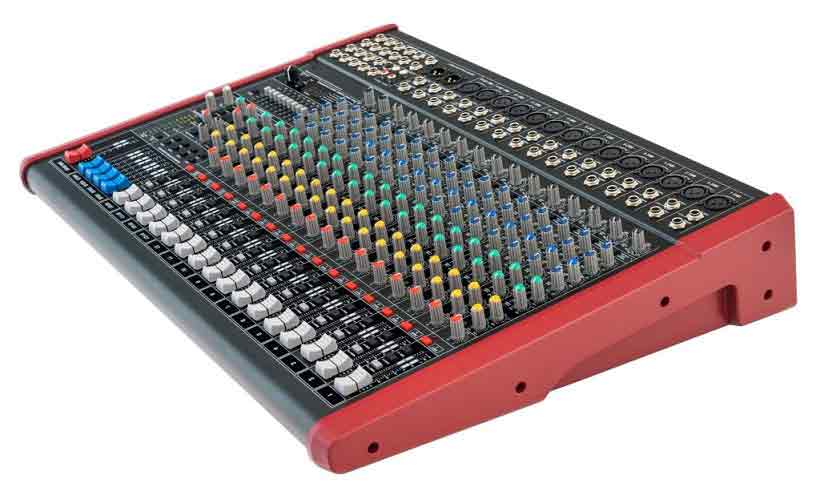
Difference between Analog And Digital Audio Mixer
Analog and digital audio mixers both have their pros and cons. Here is a rundown of the differences between the two: Analog Audio Mixer:
+Pros: Warm sound quality, easy to use
-Cons: More expensive, less features Digital Audio Mixer:
+Pros: More affordable, more features
Digital Vs Analog Mixers Church
igital vs Analog Mixers for Church When it comes to choosing a mixer for your church, you have two main options: digital or analog. Both have their pros and cons, so it’s important to understand the difference before making a decision.
Here’s a rundown of each type of mixer and what it has to offer:
Analog Mixers:
Pros:
– More affordable than digital mixers.
– Simple to use and understand
– no need for complex menus or settings. Just plug in your instruments/microphones and start mixing!
– Warm, natural sound that many engineers prefer.
Cons:
– Limited features compared to digital mixers.
For example, analog mixers typically don’t have built-in effects like reverb or delay.
– Can be more difficult to achieve a “clean” sound with an analog mixer, as they can introduce noise into the signal chain.
Digital Mixers:
Pros:
– More expensive than analog mixers, but also offer more features & flexibility. For example, most digital mixers have built-in effects like reverb & delay, as well as more comprehensive EQ controls. Some even allow you to save/recall presets for different songs or worship sets!
This can be extremely helpful if you have multiple people running sound during services.
– Cleaner sound quality overall, due to the way digital mixers process audio signals (A/D & D/A conversion). This can be especially beneficial if you’re recording your services directly from the mixer output.
Cons:
– More complicated to use than an analog mixer
– there are often many menu options & settings that need to be adjusted in order for everything to sound just right.
Best Digital Mixer
A digital mixer is a type of audio mixer that uses digital signal processing to alter the sound of an audio signal. The digital mixer can be used to mix multiple signals, or it can be used to process a single signal. The most common use for a digital mixer is in a live sound setting, where it can be used to mix the different signals from microphones and other sources.
Digital mixers typically have a number of features that are not found on their analog counterparts. For example, many digital mixers have built-in effects processors that can be used to add reverb or other effects to the audio signal.
Additionally, most digital mixers also have some form of EQ (equalization) that can be used to shape the sound of the overall mix.
The main advantage of using a digital mixer is that it offers much more flexibility than an analog mixer. With a digital mixer, you can save your settings and recall them at any time. This means that you can spend less time setting up your equipment before each gig, and more time focusing on your performance.
If you’re looking for a new mixing console for your live sound rig, then consider investing in a digital mixer. These devices offer superior sound quality and greater flexibility than their analog counterparts.
Suggested digital mixer
BEST FOR VERSATILITY: K-Mix Compact 8-Channel Digital Mixer
OVERALL BEST: StudioLive 16.0.2 USB Digital Mixer
BEST PORTABLE: Zoom PodTrak P4
What is the Difference between Analog And Digital Live Sound Mixers?
Analog and digital live sound mixers both have their pros and cons that make them ideal for different situations. Here is a breakdown of the key differences between the two types of mixers:
Analog Live Sound Mixers:
– Pros:
– Warm, natural sound that is pleasing to the ear
– Simple to use and understand
– Cons:
– More expensive than digital mixers
— Limited flexibility and options
Digital Live Sound Mixers:
– Pros:
– Cheaper than analog mixers
— More flexible and offer more options/features
– Cons:
– Not found
What is the Difference between Analog And Digital Mixing Consoles?
Analog and digital mixers both have their own unique advantages and disadvantages. Here is a breakdown of the key differences between these two types of mixing consoles: Analog mixers are typically much cheaper than digital mixers.
They also tend to be much smaller in size, making them more convenient for smaller studios or live gigs. However, analog mixers can be more difficult to use and often don’t offer as many features as digital mixers. Digital mixers usually offer more features than analog mixers, such as built-in effects processors and EQs.
They also typically provide a better sound quality. However, digital mixers can be more expensive than analog mixers and may require a greater learning curve to use effectively.
What are Two Benefits of Using a Digital Console Over an Analogue Mixing Console?
Digital audio consoles have come a long way in recent years, and many now offer features and benefits that are simply not possible with an analogue mixing console. Here are just two of the many benefits of using a digital console:
1. Increased flexibility: A digital console offers a much higher degree of flexibility than an analogue mixer.
For example, you can easily recall saved settings, change EQ curves on the fly, and route signals to different outputs with the click of a button. This means that you can make changes quickly and easily during a live performance, without having to stop and fiddle with physical controls.
2. Better sound quality: Thanks to advances in technology, digital consoles now offer significantly better sound quality than their analogue counterparts.
This is because they generally have lower levels of noise and distortion, as well as wider dynamic range. So if you’re looking for the best possible sound quality from your mixing console, then a digital model is definitely the way to go.
What are the 3 Types of Mixing Consoles?
An audio mixing console is a piece of audio equipment that allows the user to control the sound of multiple audio signals and create a desired sonic effect. There are three main types of mixing consoles: analog, digital, and software-based. Each type has its own set of advantages and disadvantages that should be considered when choosing which type of mixer to use for a particular application.
Analog mixers are the most common type of mixer used in professional audio applications. They provide excellent sound quality and a wide range of features, but can be expensive to purchase and maintain. Digital mixers are becoming increasingly popular due to their lower cost and smaller footprint.
However, they can sometimes sound less natural than analog mixers and may not have as many features. Software-based mixers are the newest type of mixer on the market. They offer many advantages over other types of mixers, such as flexibility and portability, but can be more difficult to use if you’re not familiar with digital audio concepts.
No matter which type of mixer you choose, make sure it has enough channels to accommodate all the sources you want to use (e.g., microphones, instruments, etc.) and that it offers the features you need for your specific application.
Digital Mixer vs Analog Mixer – What’s the Difference? | Live Sound Lesson
Conclusion
Analog and digital live sound mixing consoles have a few key differences that can make or break your live sound setup. For starters, analog mixers typically have more channels than digital mixers, giving you more options for routing audio signals.
Additionally, analog mixers often have better-sounding EQs and effects processors, resulting in a warmer overall tone.
However, digital mixers are typically easier to use and offer more flexible routing options. Ultimately, the best mixer for your needs depends on the specific requirements of your live sound setup.
Related Post:
How to Use a Digital Mixing Console?
How to Use a Analog Mixing Console?
Mixing Console Troubleshooting Checklist!
Best Mixing Desk for a Recording Studio
MXL 770 Review : Best Cardioid Condenser Mic
Top 8 Best Electric Guitar Under 300
Top 6 Best Budget Audio Mixer Review
What is Matrix on Mixing Console?
How to Build a Mixing Console?
How to Build a Mixing Console Desk?

Williams Kane is a blogger and writer. He’s passionate about writing and connecting with the community, especially when it comes to sharing his ideas through writing.
I am a versatile author with a passion for exploring a wide range of topics on our multi-niche website. With a background in research and a love for writing, I bring a unique blend of expertise to our platform.
My journey began in the world of science, where I earned a degree in biology and developed a deep fascination for the natural world. This background enables me to delve into topics related to ecology, environmental conservation, and the wonders of the animal kingdom.
However, my curiosity knows no bounds, and I have ventured into various other niches as well. From technology trends and digital innovations to health and wellness tips, I strive to provide well-researched and engaging content that informs and entertains our diverse audience.
Furthermore, my dedication to staying current with the latest developments in each niche ensures that our readers receive up-to-date and reliable information. Whether it’s deciphering complex scientific concepts or simplifying tech jargon, I take pride in making complex subjects accessible to all.
Join me on our multi-niche journey, where we explore the depths of knowledge and share insights on a multitude of topics to inspire, educate, and entertain.

